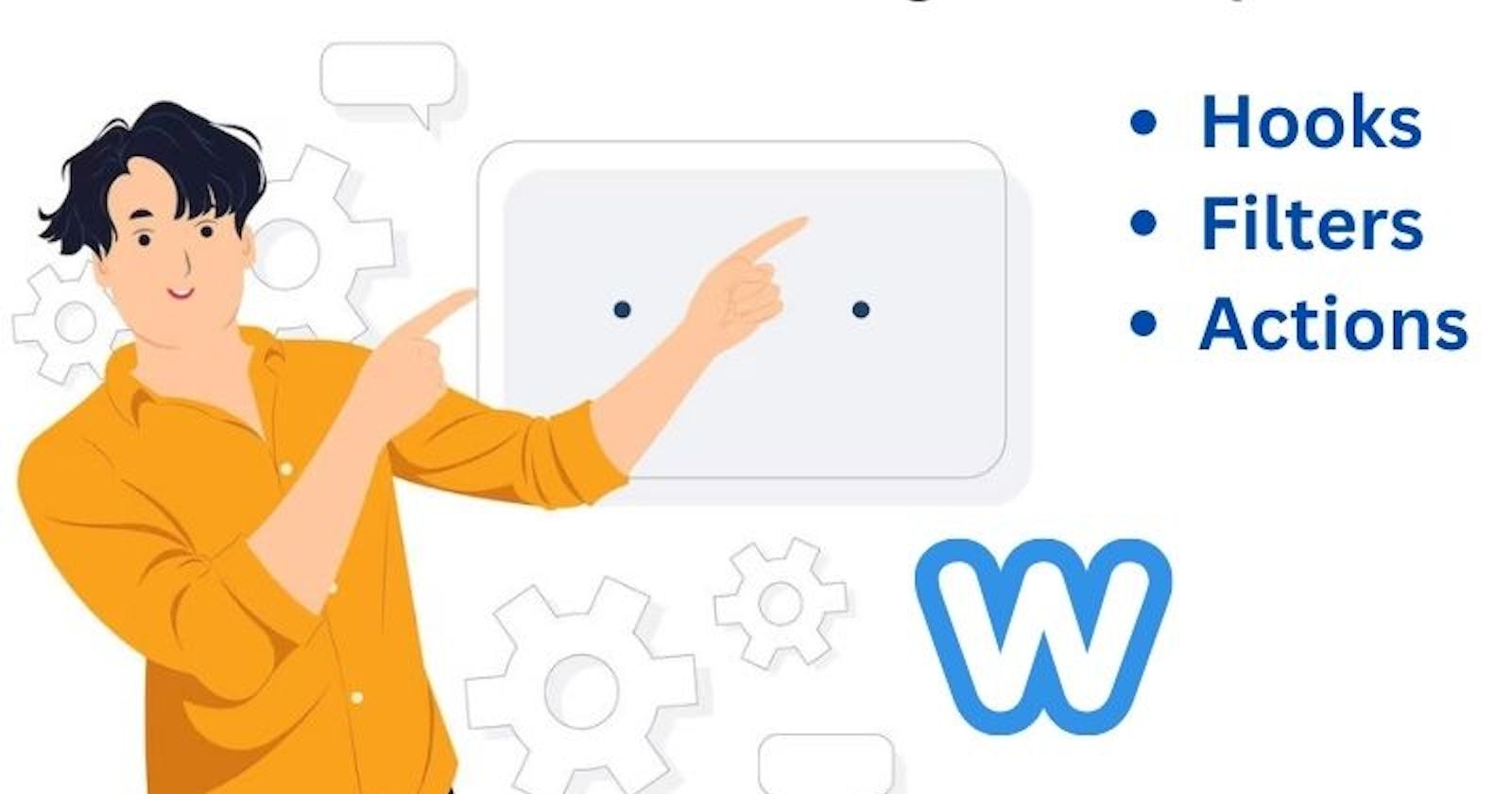Introduction:
WordPress is one of the most popular content management systems globally, powering millions of websites across various industries. One of the reasons for its popularity is its flexibility and extensibility through plugins. WordPress plugins allow developers to add custom functionality and features to websites without altering the core codebase. In this blog post, we will delve into advanced features of WordPress plugin development: hooks, filters, and actions. Understanding these concepts is crucial for developers looking to create powerful and customizable plugins for WordPress.
1. Understanding Hooks:
Hooks are essential elements in WordPress plugin development that enable developers to interact with and modify WordPress core functionality. Hooks can be categorized into two types: action hooks and filter hooks.
Action Hooks: Action hooks allow developers to execute custom code at specific points in the WordPress execution process. For example, developers can use action hooks to add custom functionality when a post is published, a user logs in, or a plugin is activated. Action hooks are denoted by functions like do_action() and add_action().
Filter Hooks: Filter hooks, on the other hand, allow developers to modify data before it is displayed or processed by WordPress. Filters are commonly used to alter content, modify query results, or change the behavior of specific functions. Filter hooks are denoted by functions like apply_filters() and add_filter().
2. Leveraging Action Hooks:
Action hooks provide developers with the ability to extend WordPress functionality by executing custom code at specific points in the execution process. Understanding how to leverage action hooks effectively is crucial for creating dynamic and interactive plugins.
Examples of Action Hooks:
init: This action hook is triggered after WordPress has finished loading but before any headers are sent. It is commonly used to initialize plugin functionality.
wp_enqueue_scripts: This action hook is used to enqueue scripts and stylesheets on the front end of the website.
admin_init: This action hook is triggered before any other administration page loads. It is commonly used to initialize plugin settings and options.
Creating Custom Actions:
Developers can create custom action hooks within their plugins to allow other developers to extend or modify plugin functionality. This enables greater flexibility and interoperability between plugins.
3. Harnessing the Power of Filter Hooks:
Filter hooks empower developers to modify data before it is displayed or processed by WordPress. Filters are instrumental in customizing content, altering query results, and finetuning various aspects of WordPress functionality.
Examples of Filter Hooks:
the_content: This filter hook allows developers to modify the content of posts or pages before it is displayed on the front end.
the_title: This filter hook enables developers to modify the title of posts or pages before it is displayed.
pre_get_posts: This filter hook allows developers to modify the parameters of the main query before it is executed.
Creating Custom Filters:
Just like action hooks, developers can create custom filter hooks within their plugins to enable other developers to customize plugin behavior. Custom filters enhance plugin extensibility and interoperability.
4. Best Practices for Using Hooks, Filters, and Actions:
While hooks, filters, and actions provide developers with powerful tools for extending and customizing WordPress functionality, it's essential to follow best practices to ensure efficient and maintainable code.
Documenting Hooks: Proper documentation of action and filter hooks within plugins is crucial for other developers to understand how to extend plugin functionality.
Providing Clear Hooks: When creating custom action and filter hooks, developers should ensure that the hook names are descriptive and indicative of their purpose.
Avoiding Overuse: Using too many hooks, filters, and actions can lead to code clutter and decreased performance. Developers should strive to strike a balance and only use hooks where necessary.
Testing Compatibility: Plugins should be thoroughly tested to ensure compatibility with different WordPress configurations and environments, especially when utilizing hooks, filters, and actions extensively.
Conclusion:
Hooks, filters, and actions are indispensable features in WordPress plugin development, providing developers with the flexibility and extensibility needed to create powerful and customizable plugins. By understanding how to leverage these advanced features effectively and following best practices, developers can create plugins that enhance WordPress websites with tailored functionality and seamless user experiences. Mastering hooks, filters, and actions unlocks a world of possibilities for WordPress plugin developers, enabling them to build plugins that cater to the diverse needs of website owners and users alike.
